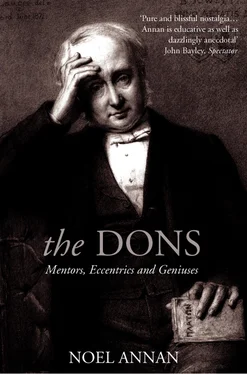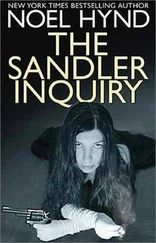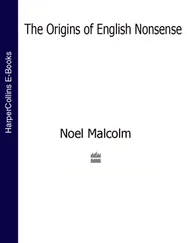Students will graduate cack-handed unless they are taught how to relate their own specialism to every other and what the meaning is of the totality. That is why everyone must study philosophy. Philosophy will teach them the difference between scholarship and ‘viewiness’, i.e. journalism or the kind of education – so Newman and most Oxford dons considered – the University of London offered.
Learning is not the sole function of a university. It is also a milieu, a place where a spell is cast over the student that binds him to it for the rest of his life. The college inside the university was the sorcerer that cast the spell. Without the spirit of a college, run by tutors who regarded their office as a calling and not another step in the journey to rich livings or benefices in the Church, a university becomes a mere examining machine. A university is nothing unless it is a place where a student lives, eats and converses with other students, learns to socialise, to understand human beings other than himself. If you specialise and grind away at a subject you may become egotistical, self-centred, uncivilised. The true university taught a man to be a gentleman, one ‘who never inflicts pain … avoids whatever may cause a jar or a jolt in the minds of those with whom he is cast … guards against unseasonable allusions or topics which may irritate. If he be an unbeliever, he will be too profound and large-minded to ridicule religion …’ A university is an assemblage of learned men [who] ‘adjust together the claims and relations of their respective subjects of investigation. They learn to respect, to consult and to aid each other.’
The satirical will observe that this was hardly a description of the role Newman had played in Oxford; what is more Newman did not hesitate to call the habit of mind that he was advocating ‘liberal’ (a word which in his Oxford days was synonymous with sin). It was a habit that inculcates ‘freedom, equitableness, calmness, moderation and wisdom’. It will not be acquired unless the student first learns the idea of rule and exception, and the scientific method of assessing evidence. Nor will he acquire it merely by reading books. The cultivation of the intellect is a goal in itself. Newman had no fear in accepting science as a fit study, whereas Michael Oakeshott’s utopia of a university (published in 1949) dismissed science as a subject that had scarcely been able to detach itself from vocational training. But then came the all-important qualification. Knowledge has to be guided and purified by religion.
The American scholar Sheldon Rothblatt *unravelled the subtlety of the qualification. The scholar or scientist, wrote Newman, should be ‘free, independent, unshackled in his movements’, untroubled by any threat that he was going too far or causing a scandal. But then no one surely could argue that a scientist would be shackled if he accepted that he would not use his science to contradict the dogmas of faith. Nor would such a scientist be unaware that among his students were those with immature minds; and he would naturally avoid scandal at all costs. The cultivation of the intellect is not enough. Without religion it is but a sounding brass or a tinkling cymbal. The filthiest Catholic beggar woman, if she be chaste and receives the sacraments, has a better chance of reaching heaven than the most upright gentleman if all he has to exhibit at St Peter’s gate are his virtues. Knowledge has to be guided by religion, Did not this qualification torpedo the lovely vessel he had built?
Newman loved to needle. ‘It would be a gain,’ he once said, ‘to the country were it vastly more superstitious.’ G. M. Young noted that Newman’s mind was forged and tempered in the schools of Oxford where Aristotle’s logic was practised: a mind ‘always skimming along the verge of a logical catastrophe and always relying on his dialectical agility to save himself from falling: always exposing what seems to be an unguarded spot, and always revealing a new line of defence when the unwary assailant has reached it’. Kingsley was the unwary assailant and his denunciation of Newman provoked Newman’s Apologia , a masterpiece of spiritual autobiography. Yet, Young adds,
If the public, or the modern reader, said ‘Never mind all that: what we want to know is, when Dr Newman or one of his pupils tells us a thing, can we believe it as we should believe it if the old-fashioned parson said it?’ I am afraid that the upshot of the Apologia and its appendices is No. What is one to make of a man, especially of a preacher, whose every sentence must be put under a logical microscope if its full sense is to be revealed?
Today it is no longer possible to define a university in terms of a single idea. British universities differ vastly. Some still pursue original enquiry and, unlike Newman’s utopia, engage in fundamental research. Others contain departments for specialist learning and act as a service centre for vocational, professional and technological demands made on them by government. Whether it was wise to call them all universities is another matter. Nevertheless Newman’s ideal was not all that far from the distinguished liberal arts colleges in America, and some new universities in Britain tried to set up separate colleges within the campus. For many years Newman’s Idea was cited as the justification of the Oxford and Cambridge colleges and of the special status of Oxbridge as distinct from other universities. To this day Oxford and Cambridge colleges scarcely doubt that, from whatever class their students come, they exist to educate Newman’s elite.
‘ Credo in Newmanum ’ was not an idle joke. His magnetism lasted long after he disappeared from Oxford. He haunted those who knew him in their dreams. His disciple W. G. Ward, who in turn had to resign from his lectureships at Balliol and then was degraded to the status of undergraduate for publishing The Ideal of a Christian Church , dreamt that he was talking to a veiled lady and telling her that her voice fascinated him as Newman’s once had done. ‘I am John Henry Newman,’ she said, throwing back her veil. Another dreamt he was travelling in a first-class carriage and talking to an elderly clergyman whom he suddenly recognised as Newman and who said to him in a tone of surpassing sweetness, ‘Will you not come and join me in my third-class carriage?’
Newman’s charisma was unmatched. As knowledge became more specialised and Oxford and Cambridge grew larger, no don could hope to appeal to the whole university as Newman was able to do. Some thought Ruskin might do so; and T. H. Green, who appeared as Mr Gray in Mrs Humphry Ward’s novel Robert Elsmere , intrigued so many students that Jowett feared he was indoctrinating them. But neither of them rivalled Newman. Although brilliant lecturers over the years bewitched their audience few could expect many students from faculties other than their own to attend. Scientists often regarded the head of the lab, ‘the prof’, with awe and affection; but no mass audience of undergraduates hung on the utterances of Rutherford or Florey. To see charisma at work in the twentieth century you had to go to a smaller institution such as the London School of Economics. There Laski *exerted a pervasive influence among generations of students, particularly those from India; though perhaps the truer charismatic figure was R. H. Tawney, the famous socialist historian, recognised by colleagues and students alike as something of a saint. Tawney held out hopes of a better world to come, and he possessed a quality that impressed all who met him: purity of heart. The Cambridge philosopher G. E. Moore possessed this quality and so, in a fierce, uncompromising way, did Wittgenstein. But though everyone knows of Moore’s influence on Bloomsbury, the numbers these Cambridge philosophers spoke to, immured as they were in a tiny faculty that spoke to none other, were sparse. At Oxford it was different. Philosophy was integral to Greats (the second part of the degree in classics) and in Modern Greats (the degree in philosophy, politics and economics). In the midcentury Ryle, Ayer and Austin, the Robespierre of linguistic philosophy, held audiences agog. But no one thought of comparing any of them to Newman.
Читать дальше












